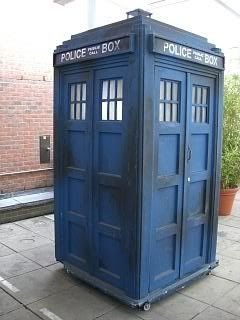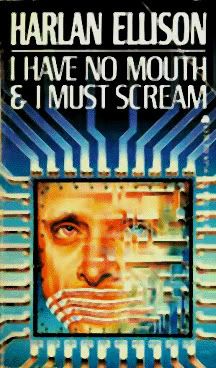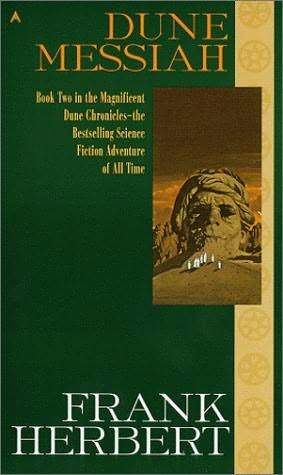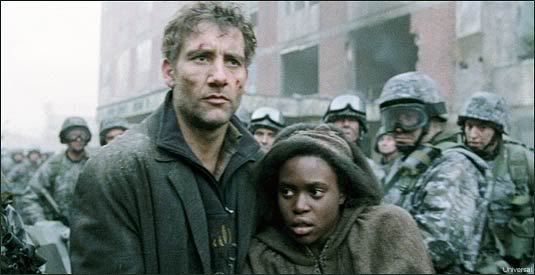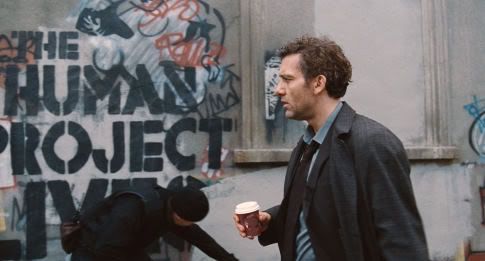I was on vacation earlier this summer at a friend's cottage near Parry Sound, Ontario. While in town one day, we walked over to Bearly Used Books, a terrific used book store where, along with about eight other books, I picked up a copy of Frank Herbert's Dune. I was vaguely familiar with the general plot, having seen parts of the televised miniseries years ago, and knowing that it was considered a classic among sci-fi fans I was eager to read it.
Needless to say I read it ravenously. Frank Herbert crafted the world of Dune with loving detail and a passion akin to Tolkien, with appendices, maps and a glossary at the end of the book. It was not a typical sci-fi world either; I found the idea of mentats, human supercomputers necessary since the ban of thinking machines, especially interesting.
I quickly went out to a used book store back home in Montreal and picked up the first two sequels, Dune Messiah and Children of Dune. I just finished the former and, while it was still very good, it didn't feel nearly as polished or as cohesive as the first book. I'd like to address what I felt were weaknesses in the plot, so be warned that there are spoilers ahead, although nothing that would really ruin the book for you.
Dune gave me the impression that Frank Herbert had every aspect of the universe figured out beforehand, and was gradually revealing them to the reader. However, in this book, we are suddenly presented with the Bene Tleilaxu, who are apparently a very important group of gene manipulators and have as much clout as one of the Great Houses. They can revive the dead, give people new eyes, and even apparently made their own Kwisatz Haderach! Yet, they go from unmentioned in the first book to common knowledge among the populace in the second. I can appreciate that the author wanted to introduce a new faction, but it really hurt the feeling of cohesiveness of the Dune universe.
In the first book we were told about how very secretive the Spacing Guild is. Their methods are only hinted at, and they send only low-ranking navigators to meet even Emperor Corrino. In Dune Messiah, however, Edric the Guild Navigator appears in front of the entire royal court and seemed to have no problem discussing prescience and spice. Is it completely unreasonable? Of course not, Paul is the Emperor and it makes sense that the Guild would send a high-ranking Navigator as an ambassador. It is, however, a complete turnaround from how they were presented in the first book.
Finally, I don't know why the Fremen Jihad was allowed to happen. I could be wrong, but wasn't avoiding a Jihad the whole point of the first book? Everything Paul did in Dune was in an effort to stop the bloody rampage that his prescience predicted; that was his greatest motivation. Whether or not he had succeeded was left ambiguous at the end of the first book, but within the first chapter of Dune Messiah we learn that the Jihad had been raging for twelve years.
I don't mean to give the impression that Dune Messiah was a bad book; it was a great read, and it set up the next book very well. The fact that I even care about these nerdy little details is proof of what a great writer Frank Herbert is. Dune presented an entirely cohesive sci-fi universe, but unfortunately that universe is starting to show some seams.



